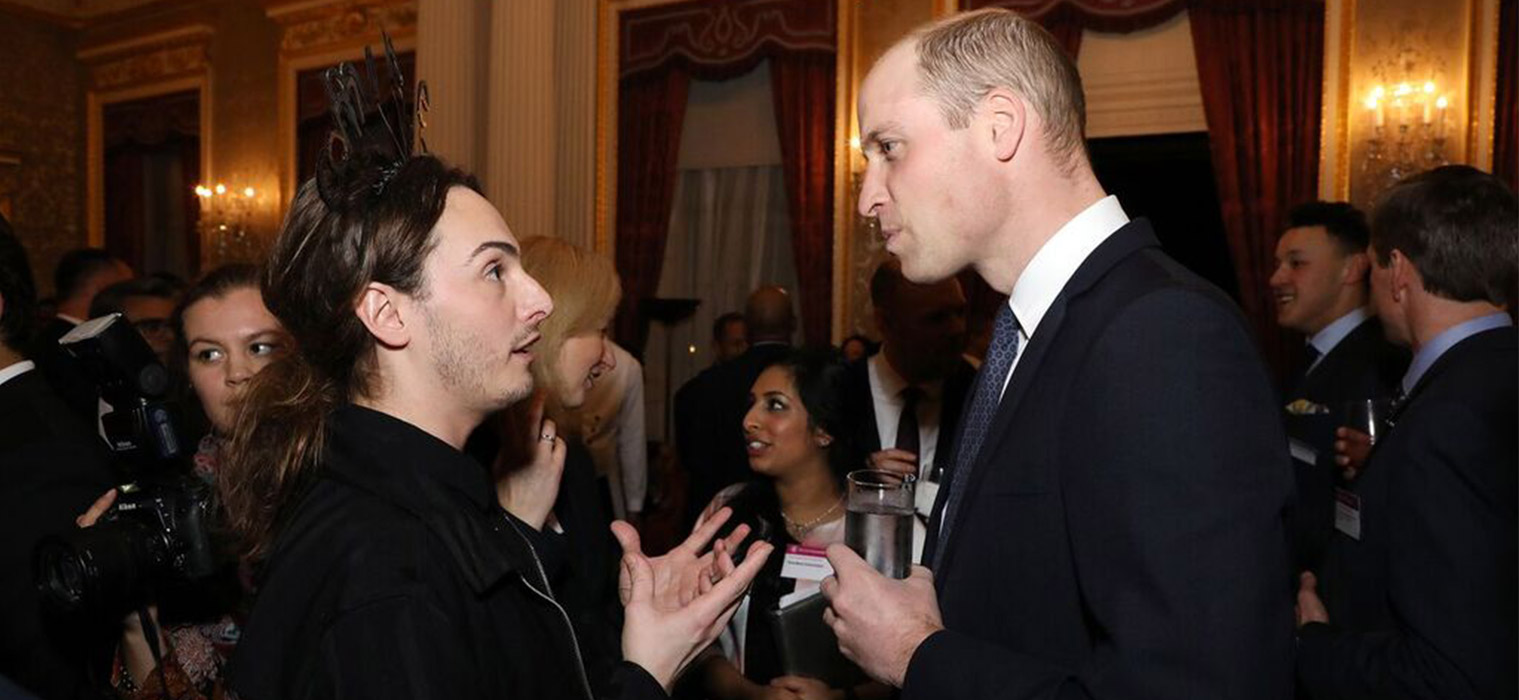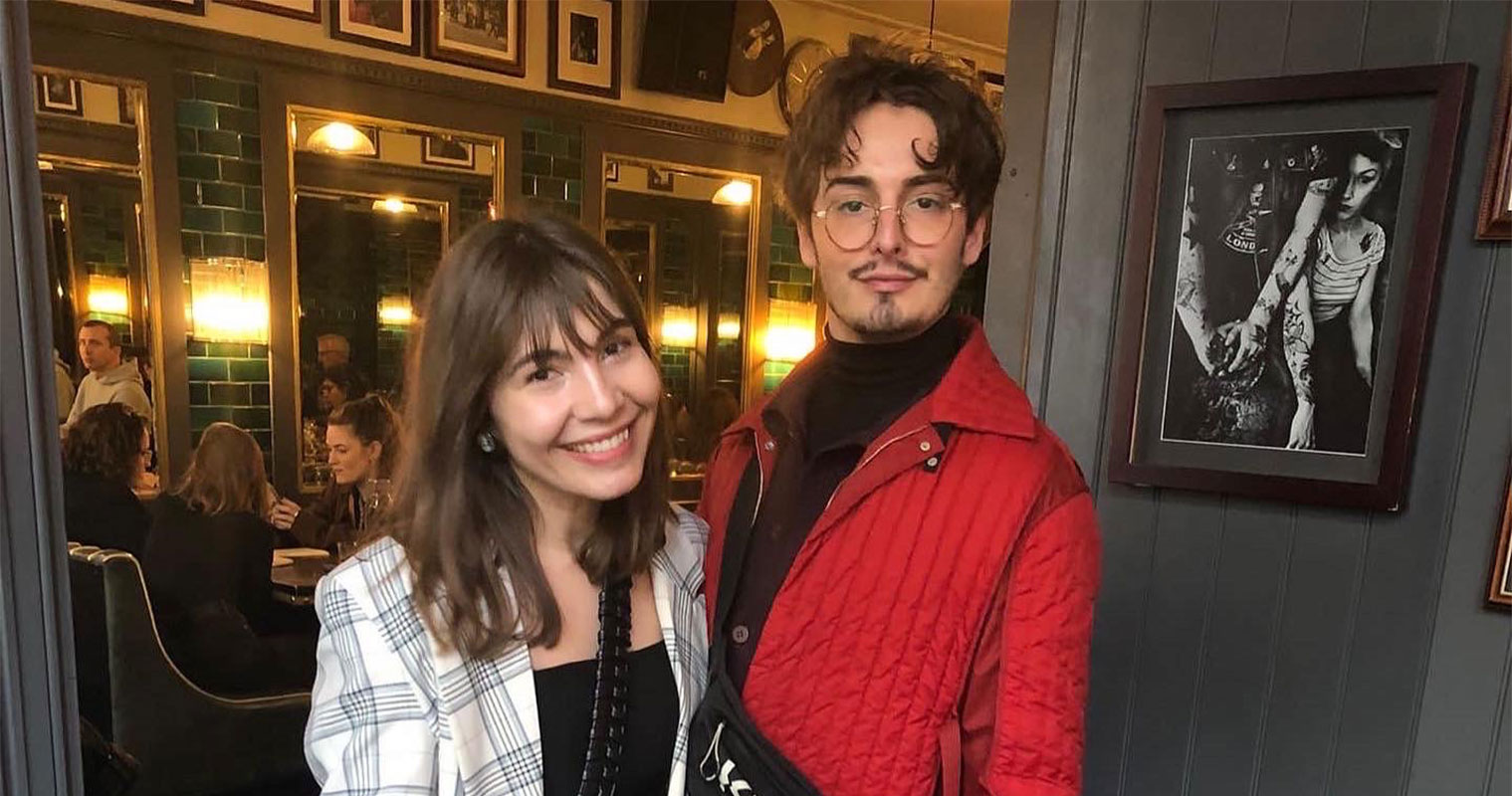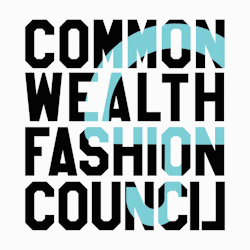“Collaborate for What You Believe In”:
A Conversation with CFC CEO
and Founder, Daniel Hatton
By Alanna Fairey
Commonwealth Fashion Content Editor
What began as Daniel Hatton’s dissertation, evolved into the development of The Commonwealth Fashion Council (CFC). Today, CFC has worked to be a common link for the 54 nations that make up the Commonwealth to tackle the issues that the fashion industry, and the world at large face today.
In a conversation with Fashion Content Editor Alanna Fairey, Hatton shares the story of CFC’s origins and the conversations that he wishes to harness in the fashion industry through the CFC platform.
Alanna Fairey: Daniel, as always, thank you for sitting down and chatting with me! Can you tell me a little bit about why you have founded this organisation?
Daniel Hatton: I founded the organisation post my MA at Central Saint Martins. To put it simply, I had seen an opportunity for 54 nations to come together and to tackle issues collectively, bearing in mind that the Commonwealth includes mostly small island nations, and developing economies, so inclusion on that front would bring to the table, in some cases, the nations and peoples who are going to feel the full impact of human’s mismanagement of our blue planet. It’s so important to bring large, medium and small size nations with us, that’s if we truly want to solve and restore our planet and to use fashion in a meaningful way to do this. It’s all about inclusion, and respect. Like I have said before, we must bring along all…not few. As you know Alanna, from our daily conversations, it’s all about “Collaborate for what you believe in!”
AF: Why are you so passionate about the importance of socio-economics in fashion for change?
DH: Think about it this way: we are all born into a position within society and certain people and communities, through birth, have better access to opportunities. Some use the power of privilege to bridge and better society. Just look at HM and how she has led the Commonwealth from 7 members to 54 members –– HM is obviously a well-connected and privileged person. I feel that she has used her position to improve global relations. This is a perfect use of privilege allyship. From my experience, people with the most industry changing ideas, if they come from a less connected or poorer background or marginalised community or have a disability, have to fight that little bit more, and some get so frustrated at the system and are forced to enter other industries. That particular individual might have had the ideas and resolutions to dramatically change our industry. But due to unequal opportunities, they didn’t reach their fullest potential, which is something I take issue with. If we bridge the gaps from a socio-economic’ point of view, we deal with uplifting and creating paths for some of the most marginalised people. The result of this means more diverse decision-makers, and people for the next generation to look up too. Looking at socio-economics and working out how to bridge gaps will, in the end, make our industry better equipped to deliver results and to inspire the next generations and diverse the fashion sector.

AF: When you first hired me, you described CFC as a platform not just for fashion and inclusion, but as a platform for conversations beyond fashion. Why is that?
DH: As you know Alanna, one of my sayings is inspired by ‘fight for what you believe in.’ With a little bit of a twist ‘collaborate for what you believe in’. The fashion sector has dramatically changed, and fashion has a strong relationship in all of our lives. It’s a powerful tool that connects us all. The CFC understands that power and uses fashion as a way to connect and talk about issues relating to fashion, but also through shared stories. But most importantly, we use the power of this platform for progressive and positive changes this is a fundamental cornerstone of the CFCs ideology.
AF: I love that you talked about how fashion connects us all, and how we bond through shared stories. Building on that idea of conversations with each other, there have been conversations about the historic nature of slavery, and I’m curious to hear more about how the platform is being harnessed for this difficult conversation?
DH: Over the past two years, the CFC has been working alongside our Planet People Hope Strategy, which is all about protecting our planet, empowering people to be better stewards (in a non-patronising way) and unleashing a new found ‘Hope’, full of optimism, and using that optimism as energy to power us forward towards a more sustainable and regenerative future. The Planet People Hope Strategy has enabled the CFC and our Board of Directors to look at wider issues historically, in the present and future, and formulate a new path for the CFC.
Unfortunately, sadly, slavery still exists today. It’s called modern day slavery, and 40 million people are estimated to be trapped in modern slavery worldwide and 1 in 4 of them are children. Almost three quarters (71%) are women and girls. This is why empowering genders through fashion is so important. Fashion with its cloudy supply chains, and child force labor and poorly paid and poorly kept work places which are a breathing ground for sexual, emotional and physical manipulation and harassment. This is happening right now. It is also important to say that fashion is making big leaps forward and many businesses are stepping up. Along with this, we must never forget the past and people should use such bodies as the CFC to mobilise action and to transform lives. I can see that the next strategy for the CFC will be focused heavily on eradicating modern day slavery within fashion. I feel that from an early age we must all talk about slavery in a past and present context.
A couple of weeks ago, I learned that the word ‘slave’ originated from the world Slavs, who are a large European ethnolinguistics group. It’s noted that frequently slaves were enslaved by Moors from the Iberian Peninsula and North Africa. I was so surprised when I was told this and this amplifies my point that we have a duty to delve into the ugly past of slavery –– that’s talking about the Atlantic Slave Trade, the Arab Slave Trade, so we can educate our young leaders, so we never repeat mistakes. This is fundamental. CFC is a platform for discussion –– not just about fashion, but about wider issues related to the industry and beyond.

AF: You are a working class Liverpudlian. And now you’ve managed to work your way up to a more executive role within the Commonwealth. What has that journey been like from a professional and personal point of view?
DH: Yes, a very proud scouser! I understand the power of being part of an extended family! No matter where I am, when I bump into a scouser, it’s like I’ve know them for years. That’s such an amazing thing and thinking about it, that’s why I love the Commonwealth and the potential of the Commonwealth. Imagine if we were to somehow install that family like ethos into ‘being proud to be a Commonwealth citizen’. I think we all should be very proud to be a Commonwealth citizen, its 54 nations strong, 2.4 billion people –– somehow who all come together, to reach consensus. It just blows my mind.
As with all journeys, it’s been very tough. The Commonwealth can be a very stuffy place, with a lot of closed doors and bureaucracy. I did feel more so at the early days of setting up the council that certain people were unsure about me, as I am very much working class, and I think it’s fair to say that the Commonwealth circles can be led by more of a traditional crowd. Don’t get me wrong –– most of the people I encounter are supportive, but I felt certain people should have been more open to me and less fearful or doubtful. I do believe my background was unfamiliar to them –– plus I stuck out, in my opinion –– and I did experience a certain level of ignorance due to who I was in certain situations. But I was not having it. If something was said or mannered to me, I would just shut it down. Sometimes with complete pleasure.
The Commonwealth is such a diverse family, which I love. But going back to the importance of socio economics –– it’s important to stress that diversity is about variety. We are blessed here at the CFC with so many global voices, but we must go out and seek new voices from other marginalised groups and clusters, only then will be harness the future and continue to embrace variety.
Leadership has evolved –– it was once all about strength, then about brains, now it’s about heart, brains and strength–and to harness the power of collaboration.

